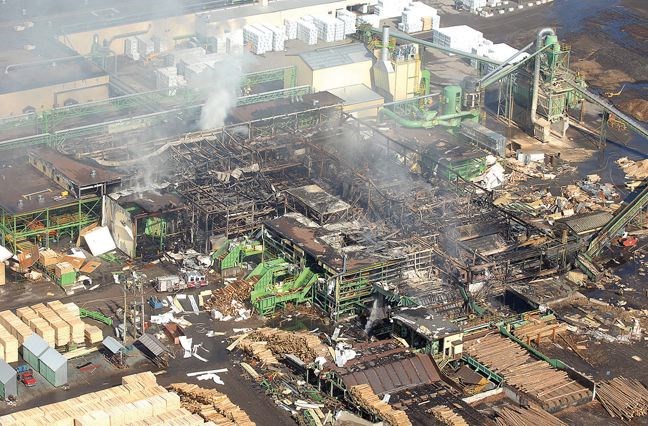Criminal charges could theoretically still be laid in the Lakeland Mills blast, but they are not the primary objective of provincial Crown.
Government prosecutors are reviewing the case file presented late last week by WorkSafeBC, which is recommending regulatory charges only, and despite the fact the workplace safety agency presumably used the same investigational methods for Lakeland as they did for the Babine mill blast.
Provincial Crown discredited the entire methodology and dismissed the Babine case without even attempting to bring it to trial.
"That's not something I'm prepared to surmise," said Ministry of Justice spokesman Neil MacKenzie when asked if the same thing was going to happen with Lakeland. "It is a separate case, a separate process, and whatever the outcome the decisions will come out based on this specific report and the available evidence it provides."
A spokesman for Sinclar Group, the principal owners of Lakeland, said "It is not surprising to Lakeland Mills that regulatory charges were on the mind of WorkSafeBC. We were told that the investigation package would be forwarded to Crown, but we were not told when that would be, and we don't know what Crown's decisions might be. We can't speak to the specifics because it is still an active file before the Crown."
Cam McAlpine said there were generally three penalty streams facing Sinclar Group following the April 2012 explosion that killed two and injured dozens. Criminal charges were the foremost possibility, but the RCMP soon announced they would not pursue that option based on the available evidence, so WorkSafeBC then took over the proceedings. WorkSafe was focused on regulatory infractions under the Workers Compensation Act, which is now under Crown consideration. Additionally, and regardless of Crown's decision, administrative penalties could also be applied by WSBC.
MacKenzie clarified that Crown prosecutors have the authority to make their own decisions on charges, so criminal infractions are theoretically an option, "but all we can do at this point is confirm no criminal charges have been recommended; those would be regulatory charges."



